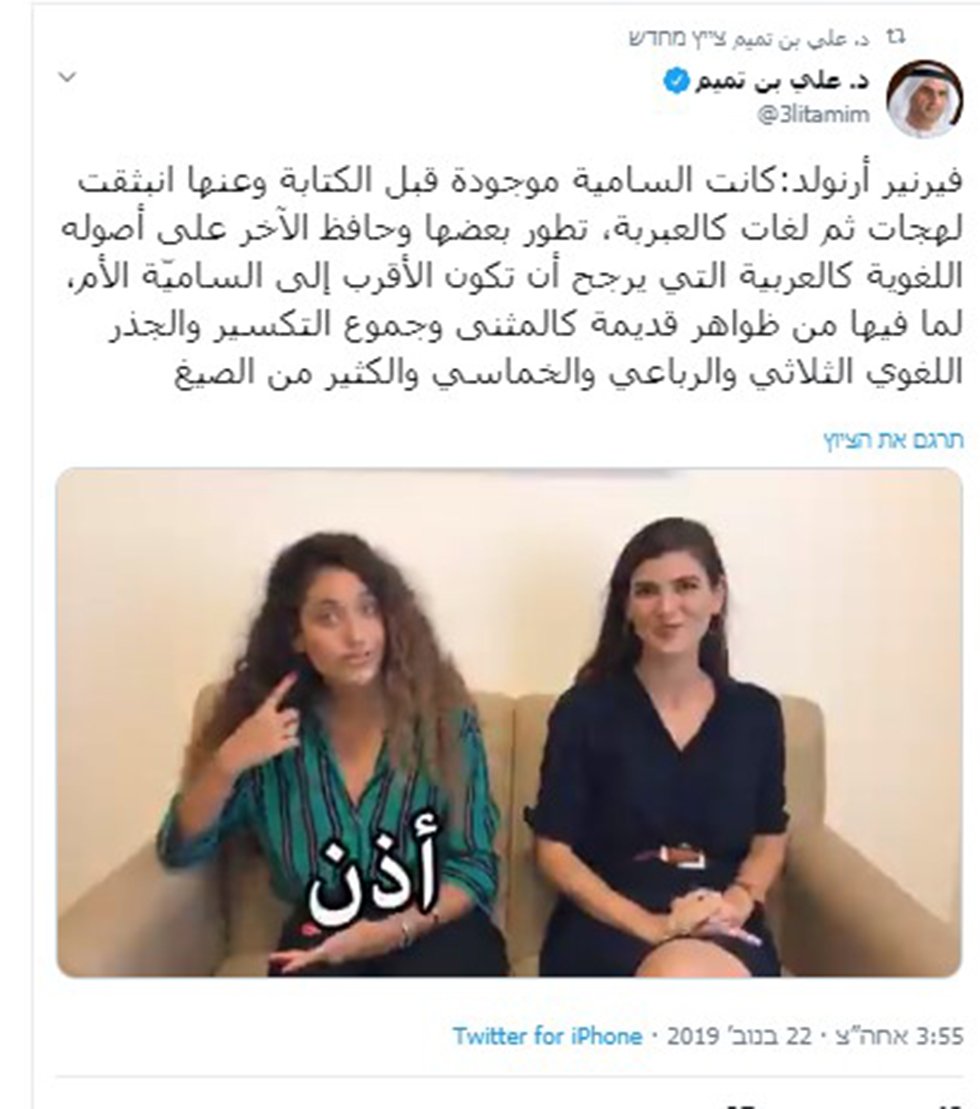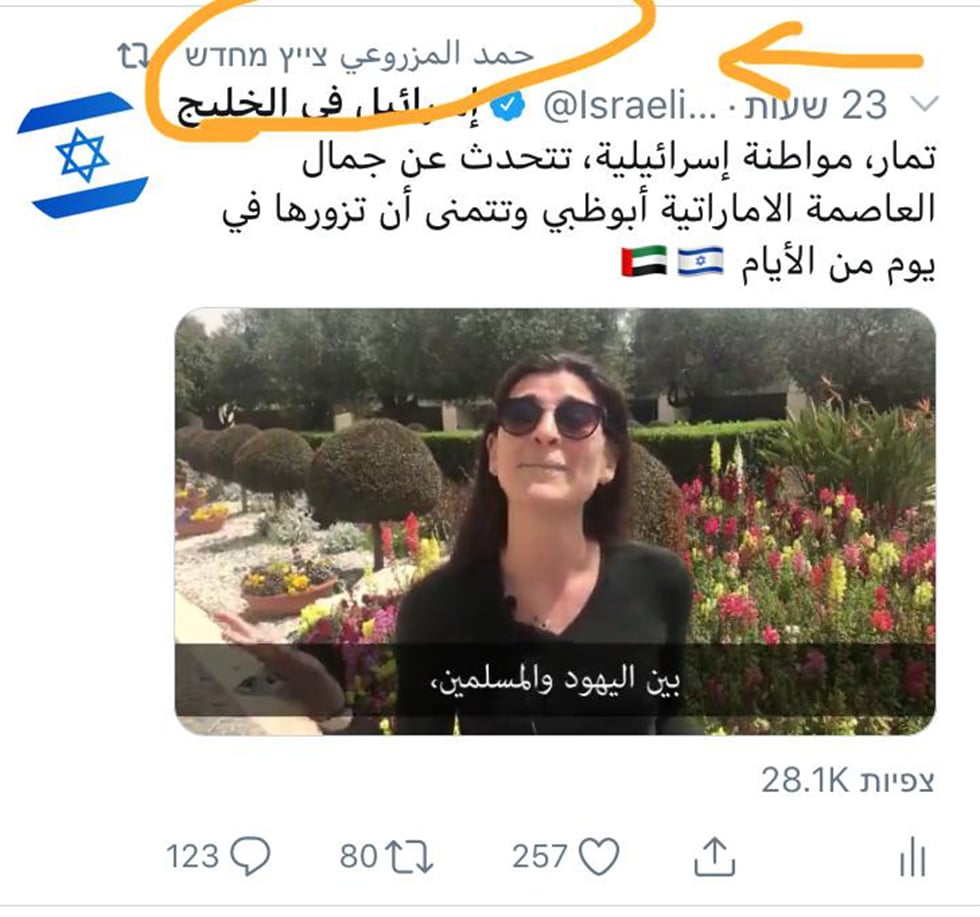Getting your Trinity Audio player ready...
A video produced by the Foreign Ministry in Jerusalem showing two young Israeli women explaining the similarities between Hebrew and Arabic has proved popular with social media influencers in the United Arab Emirates (UAE).
The video, which has garnered up to 3 million views on social media on various Foreign Ministry pages in Arabic, was shared on the account of Dr. Ali Bin Tamim, a senior official of the UAE.
The Israeli video explaining similarities between Hebrew and Arabic
(Video: Foreign Ministry of Israel)
Bin Tamim is a close confidant of the UAE President, Khalifa bin Zayed Al Nahyan, and was until recently a senior adviser to the Emirate's Department of Culture and Tourism.
Bin Tamim has about 187,000 followers on Twitter.
Today he serves as the Chairman of the Board of Directors of Abu Dhabi Arabic Language Authority and as the chief editor of the local "24" news site, giving the video a form of approval for its content.
The video, which was produced by the Arabic Digital Diplomacy Department of the Foreign Ministry, shows Sapir Levi and Tamar Schwarzbard presenting the similar pronunciation between words in Arab and Hebrew such as ear, brain, fly, dog, strawberry and more.
Bin Tamim is not the only UAE official to share content with the department. It was also shared by Hamad al-Mazrouei, whose Twitter account has hundreds of thousands of followers. He is described by the Arabic-language media as a close friend of Abu Dhabi crown price, Mohammed bin Zayed Al Nahyan.
Israel and UAE don't have official diplomatic relations, but the two nations do conduct economic ties.
Israelis may enter the Emirates with a foreign passport, and an Israeli one after receiving a special entry permit.
The Foreign Ministry's Arabic social media accounts have millions of followers, including many Twitter followers from the UAE.
Israeli athletes attending international competitions in the Emirates have recently started using the state symbol'ss, including the flag and the national anthem.
Israel is expected to participate at the International Expo planned to be held next year in Abu Dhabi.
Yonatan Gonen, head of the Arabic Wing of the Digital Diplomacy Department, said: "In the past year we have seen a steady rise in state and media personalities from all over the Gulf region sharing our posts and material in Arabic, [offering] them new perspectives about the State of Israel, its people, culture and language."
He added: "Having the videos shared by influential persons is no less important than having the videos watched by millions of regular people. Many influencers in the Arab world are afraid to share our content for fear of hostile responses from their audience. Therefore, it is hugely important that everyone does share them, especially influential figures."






